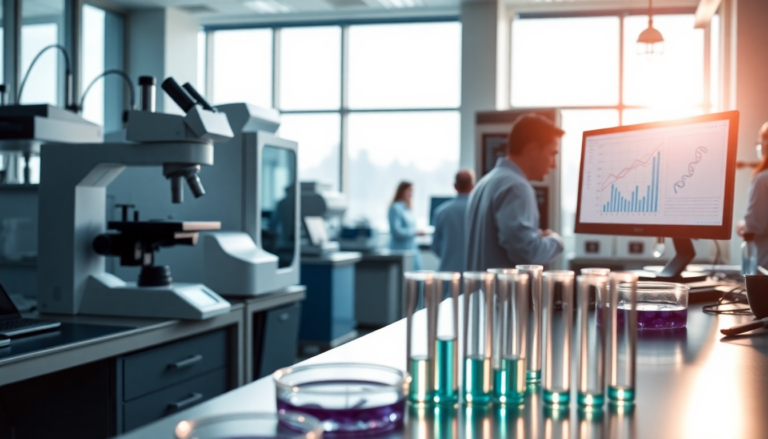Argomenti trattati
Have you ever considered how swiftly biotechnology is shifting the landscape of healthcare? It’s not just a gradual change but a seismic shift that feels like we’re living in a sci-fi novel. I remember when CRISPR was first introduced, and the excitement was palpable. Now, we’re witnessing gene editing techniques becoming increasingly precise, along with mRNA vaccines that have fundamentally altered our approach to disease prevention. It’s exhilarating to think about the potential here.
Emerging trends in biotechnology
As we stand on the cusp of a new era, it’s fascinating to observe the trends shaping the biotech industry. Personalized medicine is taking center stage, gradually replacing the old one-size-fits-all model. Imagine a world where your treatment is tailored specifically to your genetic makeup. This isn’t just a dream—it’s becoming reality. Startups like XRHealth and Envoya Bio are leading the charge, leveraging technology to create tailored solutions that cater to individual patient needs.
Moreover, the collaboration across various disciplines is driving innovation like never before. I often think about how the convergence of biology and technology is akin to a dance—a complex choreography where each partner plays a crucial role. AI, in particular, is transforming drug discovery, enabling researchers to identify potential treatments at a pace previously thought impossible. As recently reported by a study, this accelerated innovation is paving the way for breakthroughs that could redefine our understanding of diseases.
The role of AI in drug discovery
AI isn’t just an accessory in this narrative; it’s a key player. It’s hard to underestimate how machine learning algorithms are analyzing vast datasets to uncover patterns that could lead to new therapies. In my view, this is where the magic happens. For instance, AI can sift through thousands of compounds to determine which ones may be effective against a particular illness. It’s like having a super-intelligent assistant who never tires of the grind. This shift is not merely technological; it’s fundamentally changing how we approach healthcare.
Yet, this rapid pace of advancement raises critical questions. How will we ethically navigate the landscape shaped by genetic engineering? Will we be able to ensure that these technologies benefit all, rather than a privileged few? These aren’t just academic questions; they affect real lives. As I ponder these dilemmas, I can’t help but feel a sense of urgency. The stakes are incredibly high.
Personal reflections on the biotech revolution
As I delve deeper into this topic, I find myself reflecting on my own experiences and the potential futures we’re crafting. The convergence of biotech, AI, and healthcare isn’t just fascinating—it feels personal. Every innovation carries with it a promise and a responsibility. **I believe that we must engage in these discussions openly, weighing both potential benefits and ethical considerations.** We are, after all, the architects of our future.
And what about you? Have you noticed these patterns as well? Are you also asking the tough questions about the implications of these advancements? I’d love to hear your thoughts. As we navigate this new frontier, let’s share our insights and foster a community that thrives on curiosity and responsibility. After all, we’re building the future with intention, and that’s no small feat.

